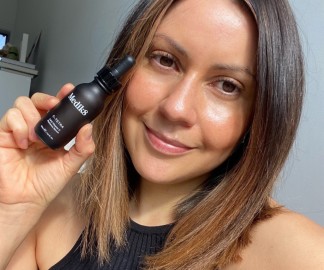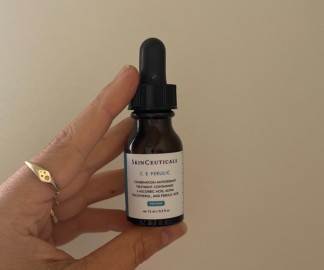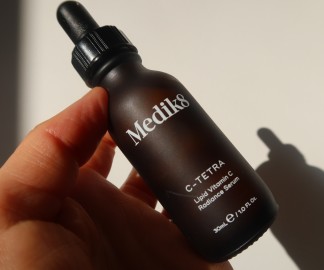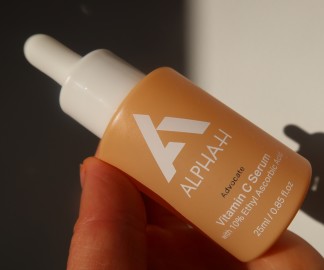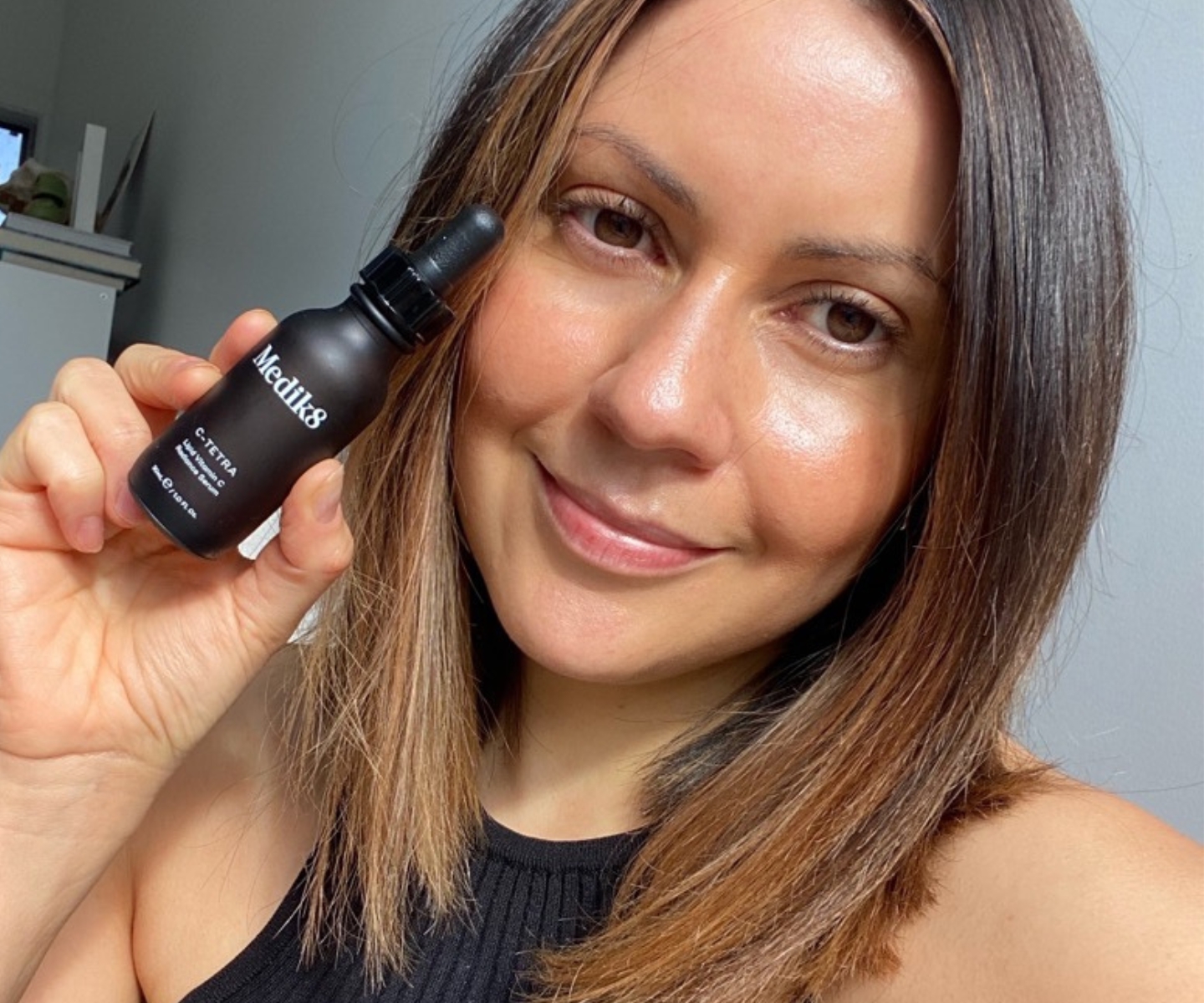
Vitamin C is an ingredient that as a Dermal Therapist, I know everyone is obsessed with.
Whether that’s because it works really well for most, or due to its genius marketing it is an ingredient that pops up frequently when I’m chatting to people about their routines.
However, it's also an ingredient that can be a little divisive for skins.
What does vitamin C do?
You see, when you get vitamin C right it can deliver a multitude of skin benefits.
Although when you try to incorporate a product that might not be right for your skin, it can have the tendency to go the opposite way - and end up being quite irritating.
This not only comes down to the formula of a product, but also the derivatives it uses.
You see, vitamin C is an umbrella term.
The active form is l-ascorbic acid and the inactive forms generally tend to have the word ‘ascorb’ in their titles.
So, when you’re looking for a vitamin C product, look for those words.
I truly also believe that vitamin C can pretty much be incorporated into anybody’s routine, but you might just need to find the right product and derivative for you, because there are so many vitamin C products and they can all be quite different.
In this article I'm going to break down some vitamin C derivatives super easily for you.
But first, let’s go through some of the studied benefits that vitamin C can deliver to the skin.
Benefits of Vitamin C.
1. It’s a potent antioxidant.
Which means that it helps to provide protection against free radical damage, which essentially leads to cell damage.
Free radical damage is happening to us all the time and is something we can’t really escape from.
It comes from sun exposure, pollution as well as internal and external stressors.
What does vitamin C do?
Well, it helps to protect our skin from being attacked so our collagen doesn’t prematurely get destroyed or weaken our elastin either.
2. Vitamin C has been proven to boost the benefits of your SPF.
Not replace it - but boost.
So it is the perfect ingredient to pair with your SPF. Why? Because it will help neutralise the effects of UVA and UVB damage alongside your SPF - pretty cool huh.
3. It helps to build collagen.
And isn’t extra collagen all that we want?
Honestly, I think 99% of my clients are after this effect - so this is where a vitamin C product can come in handy.
Plus, without getting too scienc-y your skin actually needs vitamin C to maintain and produce collagen.
So think of vitamin C as an ingredient that will help certain enzymes in your skin to do just that.
4. Vitamin C can help to even out our skin tone.
However, I personally wouldn’t rely on vitamin C alone for all pigmentation concerns, yes, it can help but pigment needs a multi-pronged approach with SPF, vitamin A, other tyrosinase inhibiting ingredients and of course, chemical exfoliants.
However, yes, this ingredient can also help with skin discolouration.
Different Types of Vitamin C.
Now onto some popular vitamin C derivatives you might find in your products…
Best Vitamin C for Normal or Combo Skin: L-Ascorbic Acid.
L-ascorbic acid is the most active form of vitamin C, it is the most studied but it is also very unstable (meaning it can oxidise quickly and won’t work as well on the skin so packaging really matters).
It can also be quite irritating for some skins so it’s not for everyone and a higher percentage does not always = better.
It needs to be formulated at a low pH and not that many people can tolerate that so I wouldn’t recommend this for acne-prone or sensitive skin.
Although, normal combination skins would tolerate this well.
Best Vitamin C for Acne-Prone Skin: Sodium Ascorbyl Phosphate.
This vitamin C derivative is much more stable and generally formulated at a pH of 7 meaning it’s not as irritating on the skin.
The penetration is questionable though, and not as well absorbed, however it does have great antioxidant protection qualities and has been proven to fade brown spots in vivo studies.
If you have oily or acne prone skin this is a great derivative for you as 1-5% has also been shown to suppress bacteria on the skin.
Best Vitamin C for Age Management: Magnesium Ascorbyl Phosphate.
Another stable form of vitamin C although a little more poorly absorbed by the skin.
It's an ok option for brightening although I wouldn't be relying on this ingredient alone for pigment.
It has proven collagen-boosting benefits and has the ability to promote hydration in the skin (actually one of the most hydrating derivatives) so this is a nice age management option.
However, its antioxidant properties are not as potent as l-ascorbic acid or other forms but it is generally well tolerated by most skins.
Best Vitamin C for Sensitive Skin: Tetrahexyldecyl Ascorbate.
This is one of my favourite derivatives of vitamin C because not only is it lipid soluble, but it’s also stable at a pH of around 5 which = very tolerable.
it’s been proven to have better absorption than some of the others, great antioxidant properties, proven collagen boosting benefits and it can help with skin brightening/pigment.
Even better? All skin types can use this.
However, this is the derivative I would be looking for if you want to even out your skin tone and/or have sensitive or problematic skin.
Best Vitamin C for Brighter Skin: 3-0 Ethyl Ascorbic Acid.
This is both a water and lipid soluble stable version of vitamin C and a good option to choose for brightening the skin and providing age management benefits.
It converts to vitamin C in the skin slowly too which is why it’s recognised as a good option for sensitive skin and is tolerated well.
Benefits come from 0.5-5% so you don’t need to be using super high percentages of this ingredient either and there are so many great products with 3-0 ethyl ascorbic acid on the market too, so it is very easy to find.
Best Vitamin C Products for Your Skin Type.
Here's just some of the best vitamin C serums and products for your skin type...
L-Ascorbic Acid: Try SkinCeuticals C E Ferulic Serum

The most iconic l-ascorbic based vitamin C on the market.
They’re famous for how potent and effective their high quality vitamin C serum formulas are and have been featured in many peer-reviewed scientific journals and clinical studies worldwide.
There are different options for different skin types too and have a patent behind the formulation parameters that are required for an effective delivery of vitamin C to the skin.
I.e. pure ascorbic acid + pH between 2-3.5 (C E Ferulic pH = 2.3) + concentration of 10-20%.
You have to use this within 6 months of opening though and I’d keep it away from direct sunlight.
Sensitive/fragile skin barriers as well as skins prone to acne or eczema should tread with caution.
Sodium Ascorbyl Phosphate: Try The Jojoba Company Ultimate Day Cream
Looking for a vitamin C cream?
If a serum based vitamin C isn’t for you, you can also find this ingredient in many moisturising creams.
The The Jojoba Company Ultimate Day Cream provides both antioxidant protection whilst delivering hydration and is a very gentle introductory option.
Magnesium Ascorbyl Phosphate (Map): Try Société Triple C Vitamin Therapy Serum

This is a great age management vitamin C option that not only utilises MAP, but is also formulated with ascorbyl glucoside and sodium ascorbyl phosphate alongside peptides making it a bit of an anti-ageing powerhouse tolerated well by most skins - especially those prone to dehydration.
Tetrahexyldecyl Ascorbate: Try Medik8 C-Tetra + Intense Lipid Vitamin C Antioxidant Serum 30ml

This is a lightweight vitamin C option that sinks into the skin really quickly to leaving it looking bright and healthy.
A gentle option for treating discolouration in most skins, including sensitive.
3-0 Ethyl Ascorbic Acid: Try Alpha-H Vitamin C Serum with 10% Ethyl Ascorbic Acid 25ml

This is a very gentle and affordable vitamin C.
It’s formulated with hyaluronic acid so it sinks in well, and helps with hydration whilst providing some well tolerated antioxidant protection - especially to those with a more sensitive skin.
Final Thoughts...
There's lot more to vitamin C than meets the eye.
So even if you’ve tried a product that hasn’t worked for you, it doesn’t mean that all vitamin C products are off the table.
It’s more about finding the right one for your skin and your concerns. And if you are still stuck?
Reach out to a Dermal Therapist for a consultation - we promise we can help.

